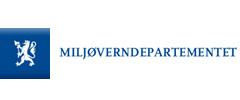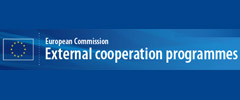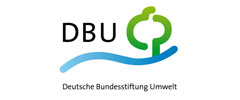Latest REACH benefit study confirms huge financial savings
A benefit study released by the European Commission yesterday estimates 9,2 billion Euro over the next 25 years in financial savings due to regulating chemicals under REACH.
16.02.2006 |WECF Press Release
“Women and future generations are the first ones to enjoy the benefits from REACH because they are also the most likely to be affected by hazardous chemicals” asserts Daniela Rosche, Women in Europe REACH expert.
However, to Women in Europe the results of the new study merely confirm what many previous benefit studies estimated. “No ever so boisterous chemical industry scare mongering about potential cost of REACH can hide the fact that REACH offers huge financial benefits to Europe as a whole” continues Rosche.
A political priority throughout the second reading has to be the strengthening of requirements concerning the quality of data industry has to submit when registering its substances. “ It is unacceptable that chemicals, as REACH currently stands, can be registered without investigating developmental or reproductive toxicity for example. We expect from our representatives in the European Parliament and governments to make sure this question and others like the substitution of dangerous chemicals will be solved to our satisfaction throughout the second reading of the draft law.
Download the WECF press release.
Brussels 15 February 2006
Savings are estimated at “a minimum €150-500 million by the year 2017 with a potential long-term benefit over the succeeding 25 years of €2,800-9,000 million”, according to an impact assessment released by the European Commission today. (1)
PRESS RELEASE
Commission releases latest assessment of health impact of REACH
Brussels 15 February 2006 – The proposed European Union chemical safety legislation, known as REACH, could reduce health care bills by up to 2.5 billion Euros in EU 25 countries over the next 10 years.
Savings are estimated at “a minimum €150-500 million by the year 2017 with a potential long-term benefit over the succeeding 25 years of €2,800-9,000 million”, according to an impact assessment released by the European Commission today. (1)
Health groups hope that this move will act as a breakthrough in raising awareness of what strong chemical safety legislation could achieve in improving health and reducing health care costs.
“Up until now, the vast majority of studies have focused on the costs to industry of the new measures,” says Génon Jensen, Director of the European Public Health Alliance Environment Network (EEN). “This has meant that the health benefits of the proposed legislation, including hundreds fewer cancer cases each year, have been consistently ignored.”
While more than 30 impact assessments have estimated the costs to business, less than a handful have addressed public health. The Commission’s original assessment stated that if REACH succeeds in reducing chemical-related diseases by only 10 %, the health benefits are estimated at EUR 50 billion over 30 years. At the time of its release the then Environment Commissioner Margot Wallström estimated that REACH could result in 2,200 to 4,300 fewer cancer cases in the workplace annually. (2)
Another assessment, prepared by the European Trade Union Confederation, covered skin and respiratory problems within the EU’s working population. It suggested that REACH could help avoid 50,000 cases of occupational respiratory disease annually and reduce the number of cases of skin diseases resulting from occupational exposures by 40,000 cases each year in Europe. This implied total average savings of 3.5 billion Euros over 10 years for the EU-25. (3)
Wider understanding of the effects of a Europe without a strong chemical safety policy should lead to a greater sense of urgency for REACH legislation. In recent months, the European Parliament and Council of Ministers have voted to reduce the requirements in several areas of the proposed legislation. According to Christian Farrar-Hockley, EEN Policy Officer, “If benefits to human health are to be made, REACH must ensure that full health information about chemicals on the market is available and that all those substances that are cancerous, mutagenic or toxic to reproduction or of equivalent health concern are replaced by safer alternatives,” he says.


































